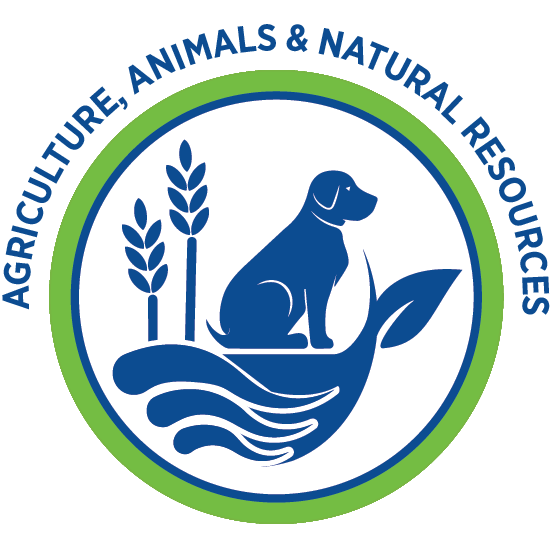Agriculture, Animals, and Natural Resources
Questions? Contact us.
DMACC
Agriculture, Animals, & Natural Resources Pathway
aanrpathway@dmacc.edu
800-362-2127

Agriculture, Animals, & Natural Resources
Produce, Treatment, Sustainability, Management, Care
About This Pathway
The Agriculture, Animals, & Natural Resources pathway equips you to use and care for earth’s basics - land, water, wind, plants, animals - in any number of career fields. By following this pathway, you have many certificate/diploma/degree options and many career choices. You could work with plants, animals, and other living things or make a living off the land, perhaps as a farmer. You could help preserve the environment, keep water clean, or use your ideas to create beautiful landscapes or floral arrangements. Becoming an entrepreneur and owning your own business in these areas is also an exciting possibility.
Programs of Study
Agribusiness
The Agribusiness program is designed to prepare students for the rapidly expanding food, fiber and natural resources industry.
Horticulture
The DMACC Horticulture program provides students with technical training in the broad horticultural field through the classroom, greenhouse, landscape, turf area, tree nursery, and practical on-the-job employment experiences.
Veterinary Technology
Veterinary technicians provide professional technical support to veterinarians, biomedical researchers and other scientists.
Water Environmental Technology
The Water Environmental Technology degree is designed to address the education requirements of operators working in the water and wastewater industry and students interested in entering the water and wastewater industry.
- Loading...Water Environmental Technology, AAS
- Loading...Wastewater Treatment and Collection System Technology, Diploma
- Loading...Water and Wastewater Treatment, Diploma
- Loading...Water Distribution and Wastewater Collection System Technology, Diploma
- Loading...Water Treatment and Distribution System Technology, Diploma
- Loading...Wastewater Collection System Technology, Certificate
- Loading...Wastewater Treatment Apprenticeship, Certificate
- Loading...Wastewater Treatment Technology, Certificate
- Loading...Water Distribution System Technology, Certificate
- Loading...Water Treatment Apprenticeship, Certificate
- Loading...Water Treatment Technology, Certificate
Liberal Arts
Students planning on transferring to a four-year college/university may complete their freshman and sophomore requirements at Des Moines Area Community College.
Nondegree Training
Nondegree classes provide key skills for new and rewarding employment opportunities in targeted career areas.
Get Involved
Get involved, and join a club. Learn from your peers and make new friends, maybe even find a new passion. There's so much to do besides go to class at DMACC!
- Ag Business Club
- Horticulture Club
- Vet Tech Club
- National Professional Agricultural Student (PAS) Organization
- EcoClub
Pathway Success Team
Each Pathway has dedicated and caring experts ready to support your success at every step of your journey at DMACC such as advisors, navigators, and faculty.
Prospective Bears: for help with initial exploration in this pathway and how to apply, contact aarnpathway@dmacc.edu.
Current Bears: for academic, professional, or other support, start by contacting your assigned Academic Advisor.
Award Information
AA: Associate in Arts Degree. An AA is a degree made up of 64 credits you can earn at DMACC with the intent of continuing your education at a 4-year college or university. An AA is a relatively inexpensive way to take care of your general education requirements.
AS: Associate in Science Degree. An AS is also a degree made up of 64 credits you can earn at DMACC with the intent of continuing your education at a 4-year college or university. An AS is a relatively inexpensive way to take care of your general education requirements.
AAS: Associate in Applied Science Degree. An AAS is a degree made up of 64-86 credits you can earn at DMACC that prepares you to be ready to enter the related market or industry.
Certificate: A Certificate of Specialization has a maximum of 48 credits and can typically be completed in 52 weeks that prepares you to be ready to enter the related market or industry. Certificates are not intended to have a general education component.
Diploma: A Diploma has 30-48 credits and can typically be completed in 52 weeks that prepares you to be ready to enter the related market or industry. Diploma’s are primarily discipline specific, with a small amount of general education required.
Nondegree: Continuing education coursework to support your desire to update or learn new skills, advance in your current job, or renew a professional license.
A field of study without any award type listed after the discipline indicates coursework opportunities available at DMACC.